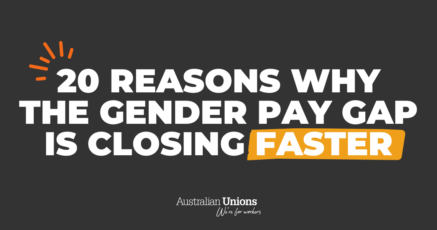‘Early Pay Access’ apps are increasingly popular in Australia under the guise of an employee ‘benefit’ – but ultimately they take advantage of already vulnerable workers.
Their promotion as a solution to our wage growth crisis misses the point: employers need to provide meaningful pay rises, not encourage parasitic pay apps that have already caused huge setbacks for workers overseas.
In our current cost-of living-crisis, the rise of these apps is especially concerning. Here’s why you should look twice before downloading.
What is an early pay access app?
Pay advance apps allow people to access their wages before payday. Employees are charged a fee (upwards of 5% of the amount), which in some instances will be covered by the employer.
They function similarly to ‘Pay Day Loans’ and ‘Buy Now Pay Later (BNPL)’ schemes in that they target people who are already struggling to live week to week, resulting in vicious cycles where workers are always falling behind.
The Financial Rights Legal Centre policy officer Julia Davis says, “These guys want to say they are not sharks but anyone would say a loan with a 200 per cent interest rate is outrageous, that is shark territory.”
While the fees for early pay access apps may be lower, they are still predatory.
How do they disadvantage workers?
Employers world-wide have been using the apps to lure in vulnerable workers. The highest group of users are young people. They also allow those with existing debt and low credit scores to sign up.
This is a hollow incentive which allows employers to acknowledge the financial stress of their employees without doing anything substantive about it.
It was also recently announced that lenders must consider BNPL debt when applying for a home loan, further disadvantaging low income earners when it comes to lending.
It’s extremely disingenuous for an employer to dangle early access to wages like a carrot in front of workers. Those workers have already earned those wages and if they’re not enough to cover everyday expenses, that’s on the employer.
Is there a better way?
Yes – workers shouldn’t even be put in a position where they have to live week to week.
For starters, employers could raise wages instead of giving their money to companies that further garnish the wages of people struggling to make it to payday.
Being a part of a union means we put the onus on the ones responsible for raising wages: employers. They should provide their employees a living wage, rather than have employees forfeit even more of their income so they can have it when they need it.
Prevention is better than cure – it’s a fact that union members earn on average 32 per cent more than non-union members. The gender pay gap is also smaller for women who are union members.
Article Cover Photo by Anete Lusina







SHARE:
Early Pay Access apps: employee benefit or employer trap?